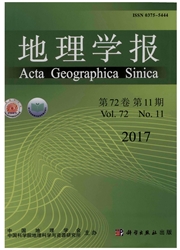

 中文摘要:
中文摘要:
全球化是当今世界最重要的特征之一。有关跨国移民对城市景观的感知和跨文化认同研究也得到越来越多的关注。在文献回顾的基础上,以广州高星级酒店外籍管理者作为研究对象,通过定性研究进行数据的收集和分析,构建了外籍管理者对城市地方景观感知和跨文化认同的形成演变机制,并得出以下结论:①在职业影响下,外籍管理者对迁入城市产生了被动的地方认同,进而形成了被迫同化的跨文化认同模式;②外籍管理者基于身份构建对城市地方景观进行感知,对反映“他者”、“我者”和“世界人”身份的景观感知度较高,反映出他们对故乡和迁入城市的地方认同,从而产生了同时具有整合和边缘特征的跨文化认同模式;③外籍管理者通过迁入城市的地方景观感知而产生地方意义的解读,基于对迁入城市正面的地方意义解读,对城市产生了地方认同和整合的跨文化认同模式,基于对迁入城市负面的地方意义解读,对城市产生了地方不认同和分隔的跨文化模式。研究结论丰富了城市景观研究和跨文化认同研究的相关理论成果,并为中国跨国移民政策和国际化城市建设提供了可供借鉴的实践参考。
 英文摘要:
英文摘要:
Globalization is the main characteristic of the contemporary world. Therefore, there come many global cities which attract a host of migrants at home and abroad. On this trend of migrants' flow, the research on transnational migrant's transcultural and translocal phenomenon plays a key role in the studies of the social and cultural geographies. At the same time, in these global cities, how the transnational migrants feel of the city environment seems to be an essential question to both geographers and the authorities. Since the reform and opening up policy was set up, a great deal of foreign capital has been consistently flowing into Chinese market. Whilst, these transforming flows have brought China numerous transnational companies and foreign employees. The high-star hotels are one of the most international companies which attract many international clients, and staff as well. As a result, high-star hotels can be regarded as the typical and representative micro transnational social spaces in urban areas. In these contexts, this article selects a special socio-cultural groups, that is, the foreign managers who are working in high-star hotels, in Guangzhou, a typical global city in China, as its research objects, using semi-structured interviews and cognitive map's drawing to collect data and information, and draws the following conclusions on how they perceive and identify the urban landscape of place though semi-structured interviews. (1) With professional features, foreign managers hold the passive place identity on the host city, and build up the passive assimilated cross-cultural identity modes. (2) The foreign managers perceive the urban landscape on the basis of their self-identity construction, therefore, they hold strong perception on urban landscapes of place which reflect their identities of 'mine', 'others', and 'global persons'. It means that, they hold complicated place identity on their hometown and the host city, and express both the integrated and marginal cross-cultural
 同期刊论文项目
同期刊论文项目
 同项目期刊论文
同项目期刊论文
 Subjectivity, modernity and the politics of difference in a peri-urban village in China: towards a p
Subjectivity, modernity and the politics of difference in a peri-urban village in China: towards a p Chinese urban migrants’ sense of place: Emotional attachment, identity formation, and place dependen
Chinese urban migrants’ sense of place: Emotional attachment, identity formation, and place dependen Charting the development of social and cultural geography in Mainland China: voices from the inside(
Charting the development of social and cultural geography in Mainland China: voices from the inside( Between God and Caesar? Christianity, ethnic identity and the resistant politics in Shimenkan, China
Between God and Caesar? Christianity, ethnic identity and the resistant politics in Shimenkan, China 期刊信息
期刊信息
